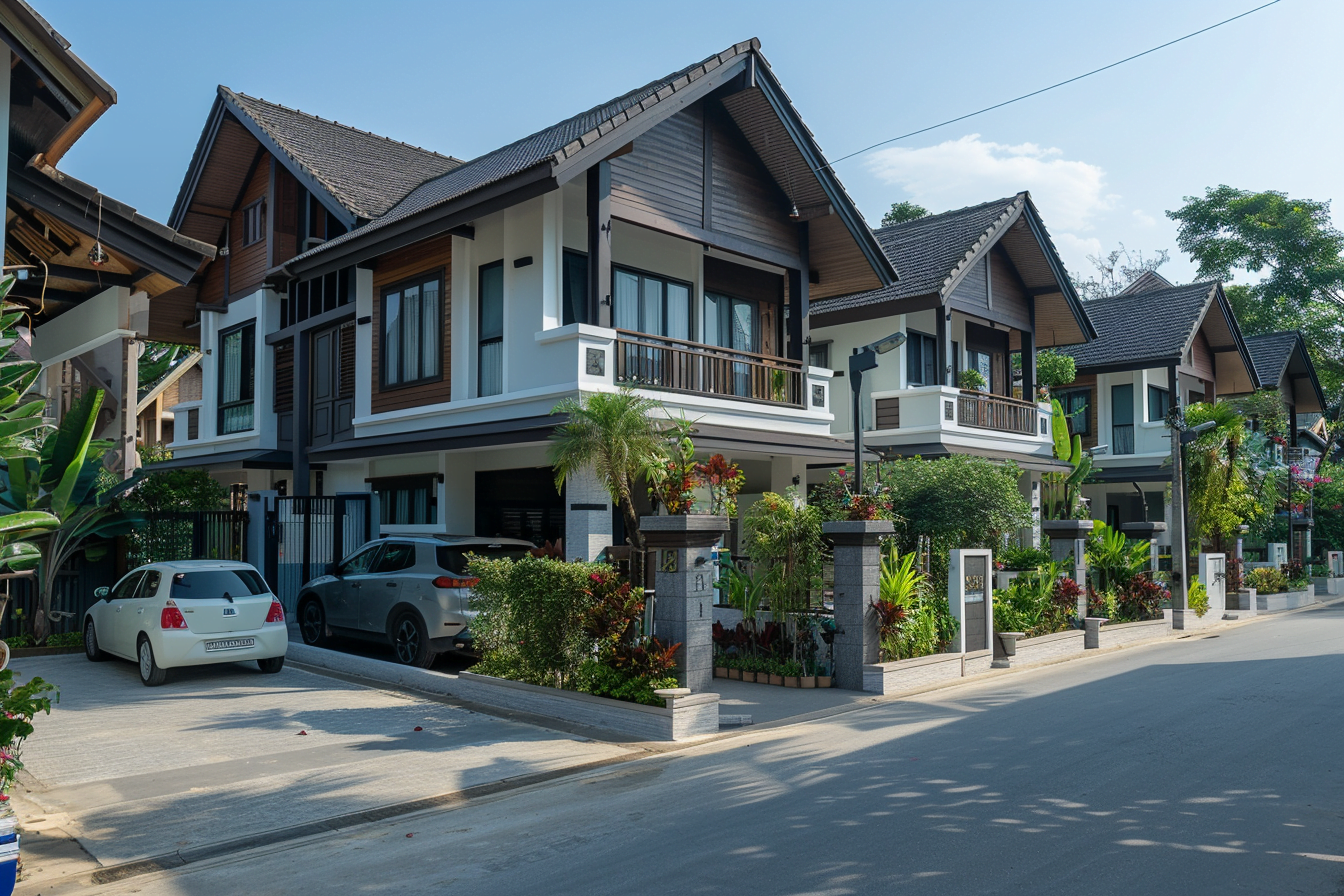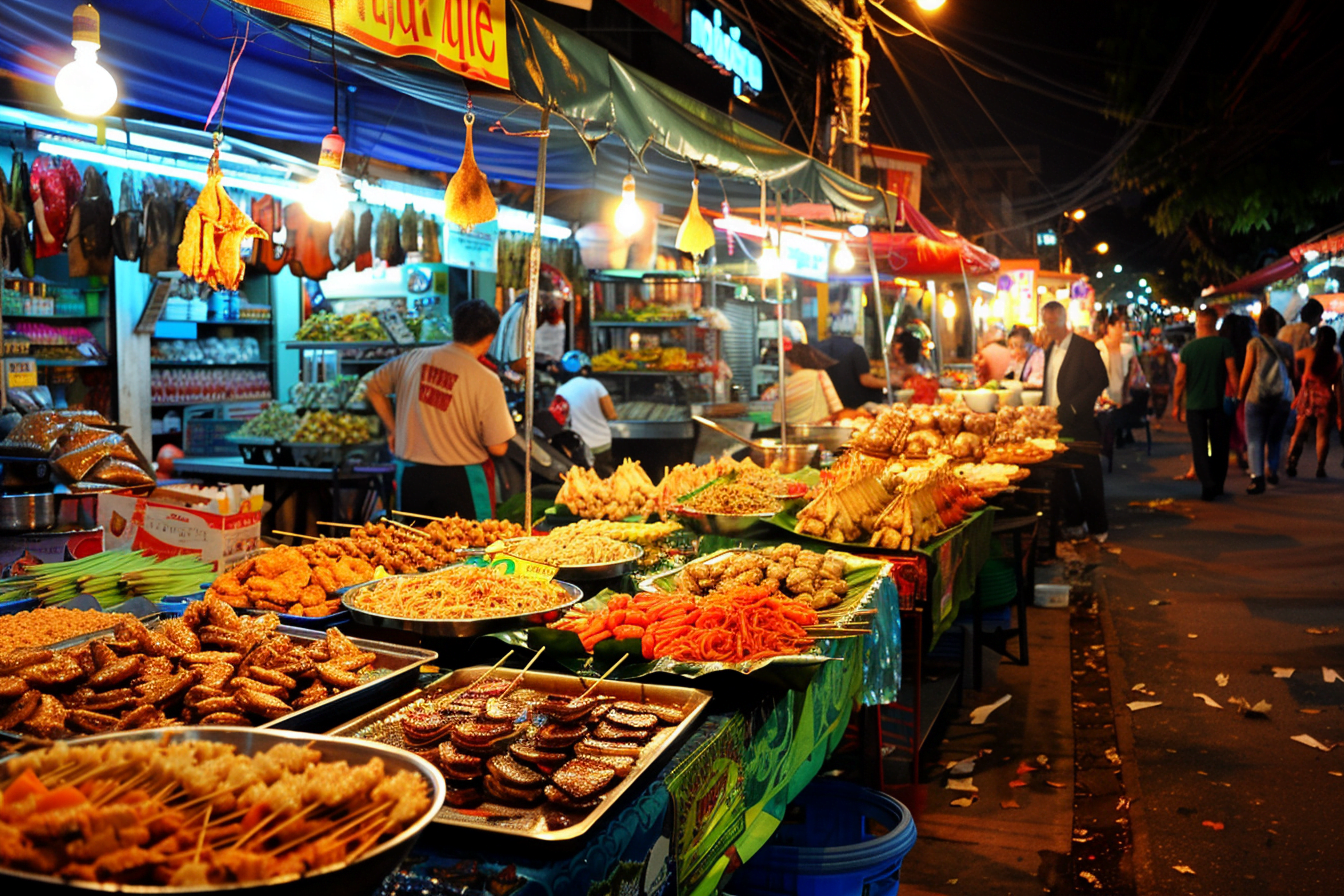Embrace your move with our Relocating to Thailand Guide, offering key tips for a seamless transition to expat life in the Land of Smiles.
Embarking on a life-changing journey by relocating to Thailand, the Land of Smiles, calls for elaborate planning and deep understanding of what to expect. While the promise of scenic beaches, delectable cuisine, and rich cultural heritage beckons, the practicality of such a move shouldn’t be overlooked. This comprehensive living in Thailand guide is designed to ease your transition and acclimate you to the vibrant expat life in Thailand. If you’re contemplating moving overseas to Thailand, it is essential to get acquainted with everything from visa regulations, real estate nuances, to cultural intricacies. Preparing yourself with the important things to know before moving to Thailand can provide a foundation for a smooth and enjoyable expatriate experience. Whether you’re seeking serenity by the sea or the hustle of city life, our Thailand expat guide will offer insights for a seamless assimilation into your new home.
Key Takeaways
- Discover the essentials for a well-prepared move to the tropical paradise of Thailand.
- Learn the visa requirements and real estate options tailored to expatriates.
- Gain insights into the cultural norms and social etiquette that will help you blend in with the local community.
- Understand the significance of securing health insurance and familiarizing yourself with Thailand’s healthcare system.
- Consider renting before buying to thoroughly explore and decide on the ideal locale for your new home in Thailand.
- Tap into local and online resources to navigate the legalities and practical aspects of living as an expat in Thailand.
Understanding Visa and Immigration Essentials
If you’re contemplating a change of scenery and lifestyle by relocating to the Land of Smiles, it’s crucial to familiarize yourself with the visa requirements for Thailand and Thailand immigration requirements. Whether you’re dreaming of serene beaches or the vibrant streets of Bangkok, understanding how to navigate the visa process is your first step. A moving to Thailand checklist will prove indispensable as it helps ensure that no critical step is overlooked during this exciting transition.
Retirement Visa Requirements for Over 50s
Retiring in Thailand is a popular choice for many, but it comes with specific obligations. For those over the age of 50, Thailand offers a Retirement Visa option with its unique stipulations. A mandatory requirement is depositing 800,000 Thai baht into a Thai bank account, showcasing your financial capability to enjoy a worry-free retirement. In addition, this visa must be renewed on a yearly basis, a process that conveniently eliminates the need for periodic exits from the country.
Options for Education and Work Visas
For aspirants, be it students or professionals, Thailand provides a range of visas to support educational endeavors or work opportunities. From pursuing Thai language proficiency to engaging in Muay Thai training, education visas serve those looking to enhance their skills while absorbing Thai culture. Work visas, on the other hand, are tailored to individuals aiming to contribute professionally to the Thai economy, carving a niche in the Southeast Asian market.
Process of Applying for a Long-Term Stay
Planning is crucial when undertaking the application process for a long-term visa in Thailand. The multistep journey demands thorough documentation, including a valid passport, proof of sufficient financial resources, and occasionally a medical certificate. Initiating your visa application preparations weeks ahead of your intended move is advised, ensuring that all interactions with the Thai embassy or consulate adhere to the stringent legal requirements, making your relocation to Thailand seamless and compliant with local immigration laws.
Finding Your New Home: Housing in Thailand

Finding the right home is crucial in easing the transition during your Thailand relocation. Whether you’re looking to integrate into the bustling city life or longing for tranquil beachside living, Thailand offers a plethora of accommodation options. Given that direct land ownership is not an option for foreign nationals, it’s important to understand the various pathways that can lead to a secure and comfortable living situation.
Pros and Cons of Buying vs. Renting
For many expatriates seeking accommodation in Thailand, the choice between buying a condominium or renting a property is preceded by weighing the pros and cons of each option.
Buying allows for ownership within the confines of condominium laws, which can be a valuable investment in prime locations. As a buyer, you’re investing in a permanent asset that may appreciate over time. However, the buying process can be complex, and the initial financial outlay is significant.
Renting, on the other hand, is a flexible choice for those finding housing in Thailand who are not yet ready to commit to a single location or who are navigating the complexities of property ownership laws. Without the responsibilities of maintenance and long-term financial commitment, renting can be an attractive temporary solution.

Leasing Land and Property Ownership Laws
Understanding Thailand’s property ownership laws is essential when considering long-term accommodation. While you cannot own land, leasing is an accessible route that can provide stability for up to 30 years, with options for renewal. Moreover, some foreigners navigate the legal landscape by setting up a limited company to manage property holdings, though this comes with stringent legal requirements to ensure legitimate operation.
When deciding on the best places to live in Thailand, many opt to start with a rental agreement. This approach not only grants the freedom to explore different communities but also offers valuable Thailand relocation advice firsthand from local residents and fellow expats.
Below is a comparative chart to help simplify your understanding of these two commonly explored paths:
| Aspect | Buying a Condominium | Leasing Land/Renting |
|---|---|---|
| Ownership | Freehold ownership of the unit | Leasehold for up to 30 years/renewable |
| Upfront Costs | Higher initial investment | Lower initial outlay, typically requiring security deposit and advance rent |
| Flexibility | Less flexible; selling can take time | Highly flexible; easier to move or change locations |
| Legal Requirements | Subject to condominium laws and foreign ownership quotas | Must adhere to Thai property lease laws |
By understanding the nuances of finding accommodation in Thailand, you can better prepare for a rewarding living experience that aligns with your personal needs and desires. Remember that the journey of finding your new home in Thailand is as much about discovering the physical space as it is about embracing the vibrant culture and warm community waiting to welcome you.
Adapting to Thai Culture and Customs
When choosing to make Thailand your home, delving into the depths of Thai culture and customs for expats is not just intriguing; it’s essential for a harmonious existence. Living in Thailand advice typically begins with understanding the values of this Southeast Asian gem. Entwined within Thailand’s history and culture is a tapestry of practices and social norms that set the foundation for daily life and social etiquette in Thailand.

These rich cultural tapestries are not only fascinating but provide a roadmap for expats to navigate social nuances and integrate respectfully within the community.
Navigating Social Etiquette
Thailand cherishes unity and propriety, expressing this through the traditional “wai” greeting—a bow with palms pressed together in a prayer-like fashion. Understanding these gestures will ease your way into Thai society. However, deeper cultural norms like refraining from touching someone’s head, considered the most sacred part of the body, and avoiding public displays of affection, can be more of a departure from Western habits.
Respecting the Monarchy and Religious Practices
Veneration for the Thai monarchy is an intrinsic part of the national identity, where legal and cultural prohibitions against disrespecting the Royal Family exist. Similarly, Buddhism’s prominence in daily life brings with it expectations of respect for religious figures and practices. Be mindful in temples, dress appropriately, and always show the utmost decorum.
- Avoid pointing feet at people or sacred objects, as feet are considered the lowest part of the body.
- When seated, tuck your feet away to avoid unintentionally offending others.
| Do’s in Thai Culture | Don’ts in Thai Culture |
|---|---|
| Perform the “wai” greeting properly | Touch anyone’s head |
| Dress modestly, especially in temples | Speak ill of the Royal Family |
| Learn a few basic phrases in Thai | Exhibit public displays of affection |
By embracing these aspects of Thai culture and customs, expats not only show respect but also gain enriching experiences that define living in Thailand. With a foundation in the rich tapestry of Thailand’s history and culture, expatriates can enjoy a seamless transition into their new, vibrant community.
Navigating the Thai Healthcare System
For those contemplating life in the Land of Smiles, understanding the healthcare in Thailand for expats is vital for ensuring peace of mind. The Thailand healthcare system is comprehensive and offers high standards of care, particularly in Bangkok and other urban areas. Expats will find that hospitals and clinics are equipped with modern facilities and skilled professionals. However, expats should be aware that healthcare costs can be significant without proper insurance coverage. Therefore, securing a robust health insurance policy, ideally before relocating, is essential.
It’s prudent for expatriates to engage in some research to identify a reliable Thai insurance broker and compare the different policies available. Preparing means not only selecting the right insurance plan but also familiarizing oneself with the local healthcare environment. Additionally, up-to-date vaccinations are non-negotiable, with immunizations for Hepatitis A and Typhoid being of particular importance for those moving to Thailand.
Beyond healthcare, moving overseas with family entails consideration of the healthcare and education systems in Thailand. Expats will find solace knowing that Thailand hosts an array of international schools providing a diverse range of educational curricula, thus making the adjustment for expatriate children more manageable. These institutions maintain high standards and align well with educational systems across the globe, assuring continuity and quality in your children’s education.
FAQ
What are the essentials to know before moving to Thailand?
Before relocating to Thailand, expats should research visa requirements, cost of living, healthcare options, and housing availability. It’s also important to prepare for the cultural transition by learning about Thai customs, etiquette, and language basics.
What are the requirements for a retirement visa for over 50s in Thailand?
Expats over 50 can apply for a retirement visa in Thailand. Requirements include proving a monthly income or depositing 800,000 Thai baht into a Thai bank, having no criminal record, and having a valid passport. No work is permitted on this visa.
What options are available for education and work visas?
Thailand offers education visas for individuals enrolled in Thai language courses or Muay Thai training. Work visas require a job offer from a Thai employer, and the company needs to obtain a work permit on the employee’s behalf.
What should I expect during the process of applying for a long-term stay in Thailand?
Applying for a long-term stay involves meticulous document preparation, including a valid passport, proof of finances, and possibly a medical certificate. The process should be started weeks in advance with the nearest Thai embassy or consulate.
What are the pros and cons of buying vs. renting property in Thailand?
Buying property provides a sense of ownership and stability, with options like purchasing condominium units, but with the restriction that foreigners cannot own land. Renting offers flexibility and is ideal for those wanting to explore different regions before settling down.
What should I know about leasing land and property ownership laws in Thailand?
Foreigners can lease land in Thailand for up to 30 years, with the option to renew, or choose to own a condominium outright. When setting up a company to purchase land, Thai nationals must hold at least 51% of the company shares, and it must be a legitimate trading business.
How do I navigate social etiquette in Thailand?
Social etiquette in Thailand includes the traditional ‘wai’ greeting, respecting the royal family and religious practices, dressing modestly, especially in temples, and avoiding touching someone’s head as it is considered sacred.
What’s important to know about respecting the monarchy and religious practices?
It is illegal and highly disrespectful to criticize the royal family in Thailand. When engaging in religious practices, such as visiting temples, it is important to wear appropriate clothing, remove shoes before entering, and follow local customs for showing respect.
How does the Thailand healthcare system work for expats?
Thailand has a reputable healthcare system, especially in urban areas. Expats are advised to obtain health insurance to cover potential high treatment costs. There are various international insurance brokers available online that can help expats find suitable coverage plans.






Leave a reply